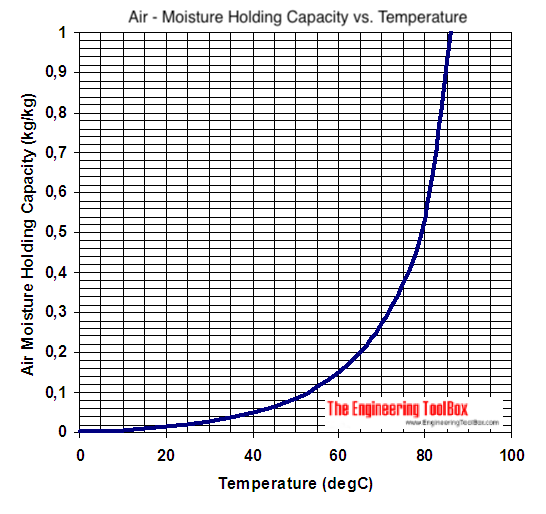From an HVAC forum I read spraying water on to the condenser can cause it to have a premature demise due to corrosion and accumulation of mineral deposits.
One solution could be the use of distilled water. I could collect AC runoff from the house or the place of work. Or a mini exhaust powered still could be created in the car.
Condenser cleaning solution is not that expensive so regular cleaning could get rid of the deposits.
Another solution proposed by the HVAC guys is spraying the water in the opposite direction of the intake so that it has time to evaporate and the minerals fall out as dust before they can accumulate.
I do not know what distance it takes for the droplets to completey vaporize, but assuming they do in short order how much water would be needed to get the maximum cooing of the incoming air.
The condenser is 0.2m^2.
Assume the car is moving at 100km/h -- 28 m/s
The volume of air is roughly 5.6 m^3 which is about 7 kg of air. (density of 1.25 kg/m^3)
If we assume that the air is 30 degC and at the moment the humidity is at %60.
From the chart below:

REF:
https://www.engineeringtoolbox.com/m...air-d_281.html
1 kg of air can hold 30ml of water.
But it is already %60 saturated, so 12ml of water evaporation capacity remaining.
( I am neglecting the temperature drop in the air due to the cooling and the consequent reduction in capacity to hold water)
We previously calculated 7kg of air, that makes 84ml of water per second.
Which is 302 liters of water per hour if the system is run full time. For some reason that doesnt look too feasible. If activated only with the AC compressor it should quite a bit less.
That 302 liters of water can absorb 100800000 joules of thermal energy.
Or 95540 BTUs. Not quite sure all this makes sense. But 95k BTUs per hour sounds like a lot more energy than the entire ac system sucks out of the cabin.